Advanced Placement, or AP classes are a reality for highschool students across the country. Whether they are looking to earn credit for college, pad their high school transcript, or just pursue a subject more deeply. According to Forbes, at least 2.8 million students took at least one AP class in 2022.
The college board defines AP classes as “College-level courses and exams you can take in highschool.” AP classes allow students to further their knowledge and to test out of college courses. This might allow them to take more challenging courses, or to be exempt from general education requirements once in college. But, not all colleges accept even the highest scores for credit, which begs the question: Are APs worth it?
Compared to other institutions that allow students to take AP courses in their early years of high school, AFS restricts these advanced classes to upperclassmen. This is due to the size of AFS and their holistic approach to education, in regard to getting underclassmen situated.
AFS offers twelve AP courses, including two in the language department, and an alternation between AP English Language and AP Literature. Along with this, students are allowed to submit art portfolios through Advanced Art and Photo Four. With the regulations and limited number of classes, this impedes the number of AP classes an AFS student can take throughout their time in high school.
With the holistic values of AFS along with the college prep emphasis of our high school experience, we wonder if AP classes are really as beneficial as they seem to be to the AFS community? And how do the students and teachers at Abington Friends School feel about AP courses?
Maggie Richards ‘25 engages in the AP curriculum through her studies in AP Spanish and Biology. She said, “The school’s curriculum is already so different from other schools. We already offer a small amount and we don’t get a lot of options. I feel we might as well not have them.”
Una Davis ‘26 said, “I don’t feel like an AP class is gonna like… change my life or is that much better than an honors class or even an elective at AFS.”
However, Davis also said, “I feel like the college process, they are going to look for a certain style of writing…That’s why I’m taking this class, so I have the skills to know what people are looking for.”
AFS also offers opportunities for students to dive into interesting electives that thoroughly examine a specific area of study, as opposed to just skimming the surface of a topic. Popular elective courses include Philosophy, Film Studies, or Culture and Conversation, which can be equally if not more challenging than the AP classes.
Language Department Head and Upper School Spanish Teacher Brian Cassady, said “ My goal as a teacher is to really help a student develop, hone, and gain confidence in their oral proficiency, their ability to speak. That does play a role on the French and Spanish AP exam, and I also think learning culture is a valuable aspect of learning a second language which also plays into the AP curriculum. [However;] if the AP French and Spanish classes disappeared, I don’t think the student experience would be lessened.”
Lisa Ammarati, Head of the Science Department and AP/Honors chemistry teacher said in regards to the difference between teaching an AP class and another class, “The biggest difference is that someone else tells me what I have to teach… I say that with the caveat that if we stripped away the AP title from the course and I was just going to teach an advanced second year chemistry course, it would be mostly the same content.”
Ammarati said, “Students are really concerned about that one test on that one day…the reality is I have to tailor my teaching for a test that I’m not writing. That’s way different from my experiences in other classes.”
Ammarati said, “One of the benefits of the AP distinction is that it is a nationally recognized set of standards, and sometimes when you’re in a place that…doesn’t do a lot of standardized testing…it is nice to have some checks against the outside world. Just to show that what your students are capable of is not just impressive in your contexts, but impressive across contexts.”
Malikah Goss and Joanna Upmeyer, directors of college guidance, commented on why we have AP classes and their effect on the community.
In responding to how both tracks benefit the community Goss said, “There is a clear outline of ‘this is what you’re going to cover’, which…lessens the mental load that is required to create a new class, figure out what you’re going to read, [and] how’s it going to work. All those pieces take a lot of time. So I think having a combination is a good thing because, you want the things where [the end goal is clear], but you also want a variety. I don’t think AP classes are particularly novel in terms of the content they are covering so offering electives…offer some of that novelty for students.”
Upmeyer said, “I also like how the electives… mirror classes I took in college, where [you take] a sliver of a field, and dive deep into it, where in APUSH [AP U.S. History], it’s a huge survey course that goes over the whole 300 year history.”
However, even with the intricate and challenging course load that may come with taking electives at AFS, with the minimal amount of APs a student can take, how does this look on applications in comparison to other students at other institutions who are able to take APs into the double digits?
Upmeyer and Goss reassure students who are doubtful about the level of prestige in their application compared to the resumes of students from other schools not to worry.
Goss said, “You can’t compare a school that is very small and can only offer 12 APs total, not all of which run every year versus a big public school that can offer 50. When colleges are reading, by high school, they are looking at what your school has in order for you to take advantage of it. At AFS, a rigorous curriculum [includes] 1 or 2 APs, 3 to 4 is very rigorous, and anything over five is the most rigorous. [Colleges] are looking at the context.”
In regards to concerns of students who haven’t taken any APs, Upmeyer said, “100% of the kids that want to go to college, go to college from our office.”
Upmeyer also brings perspective about how admission offices view AFS students, saying, “AFS students are read and reviewed by admissions offices very favorably because of the quality of writing and critical thinking that students are doing.”
When wrapped up in the college process and how to present the best image of ourselves to these sometimes selective institutions, we often forget our own values and what we want out of our college experience.
In regards to this, Goss said, “If what you want is to go to a highly respected institution that cares very much about how many APs have you taken, is that the same thing you value? And if it’s not, that’s probably not a great place for you to be anyway…”
AFS offers an array of options for students to succeed from enriching electives to standardized college prep classes. AFS gives us opportunities to explore our interests and expand our curiosities. We can engage in multiple disciplines of study that support our development in school that prepares us for college and beyond.
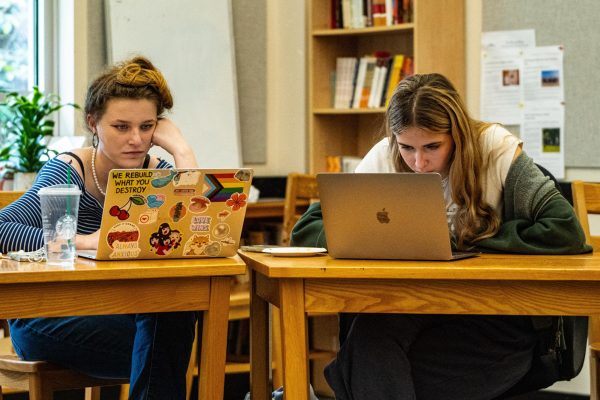
The people of AFS have many opinions on the necessity of AP classes in our curriculum. Many people can clearly point to benefits, but are they unique to this system or would they still be available to students without the title of Advanced Placement or the half-day-long tests? Are AP classes really enriching our curriculum, or would we be in the same or even a better position if we were to shed the title and offer a class that taught similar material in a less exam-forward way?
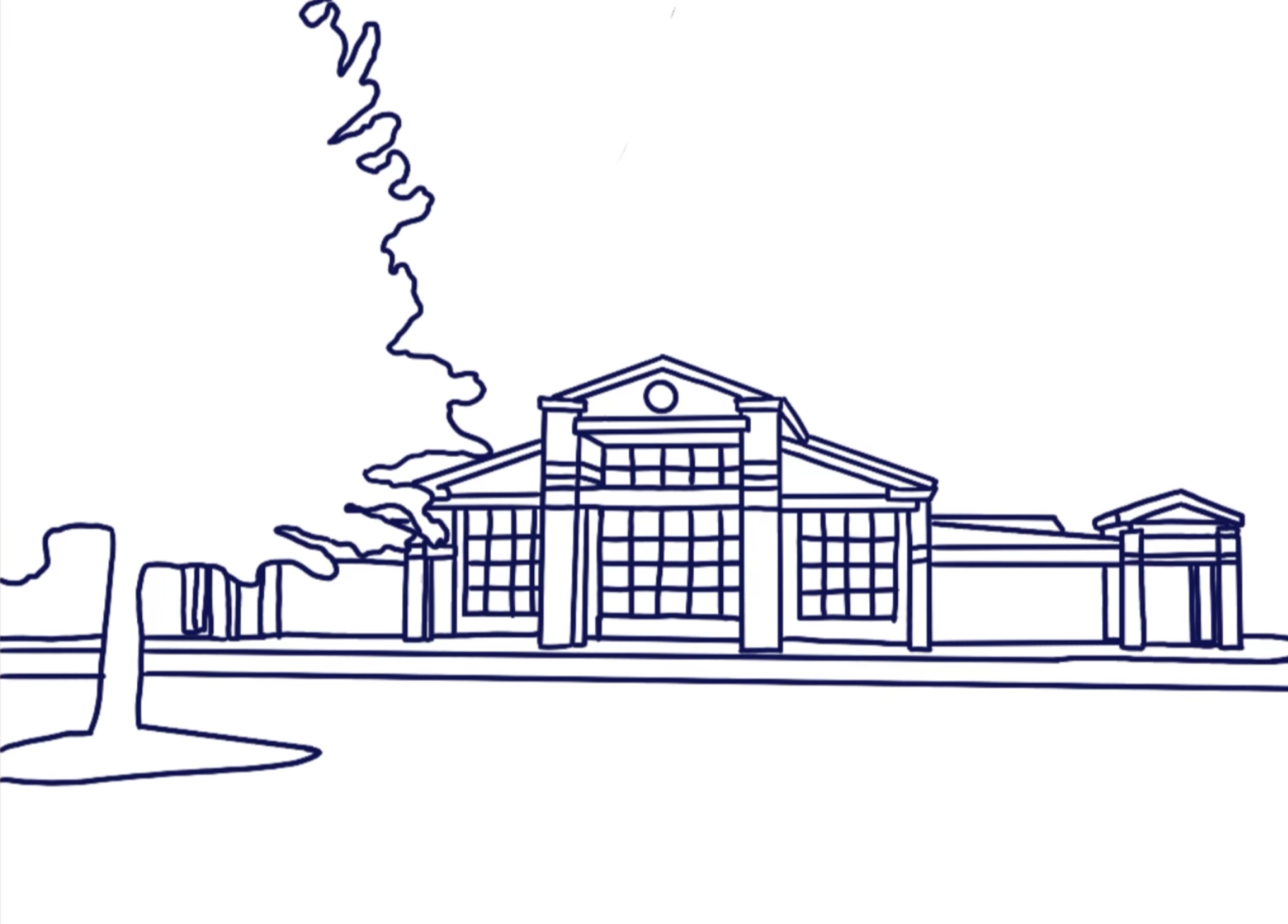









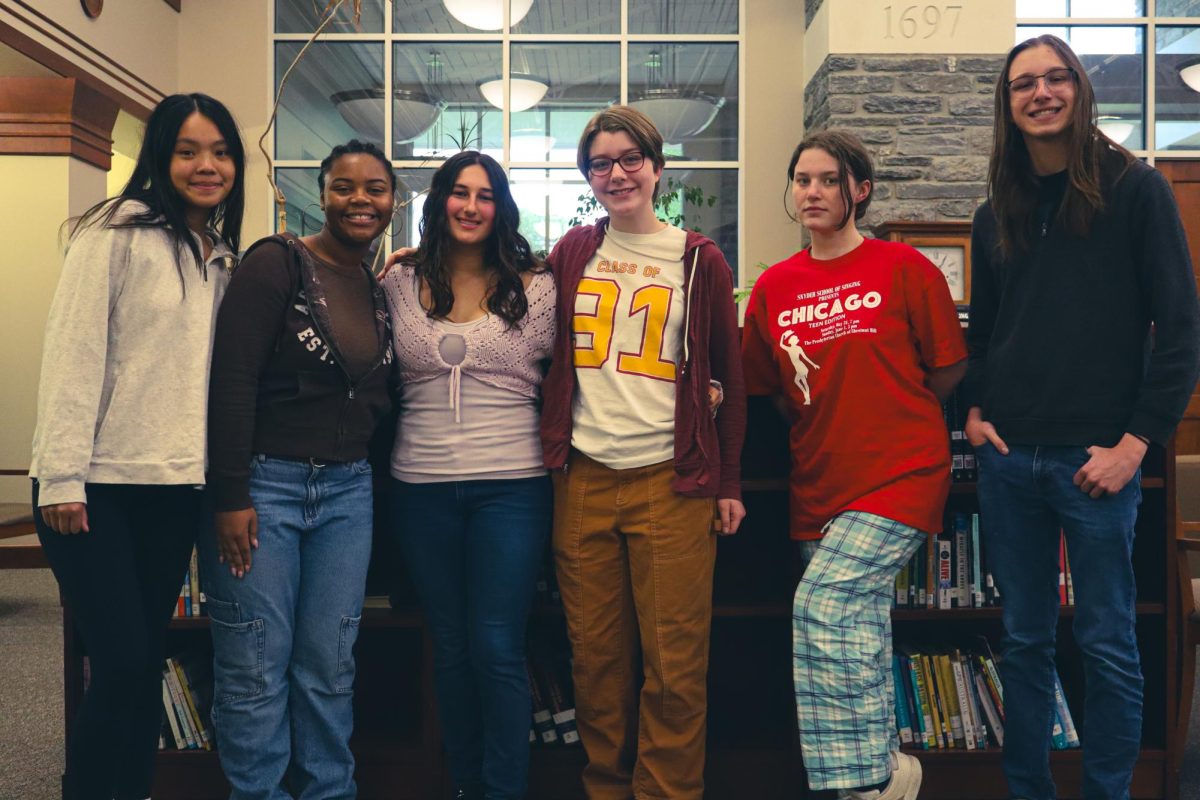



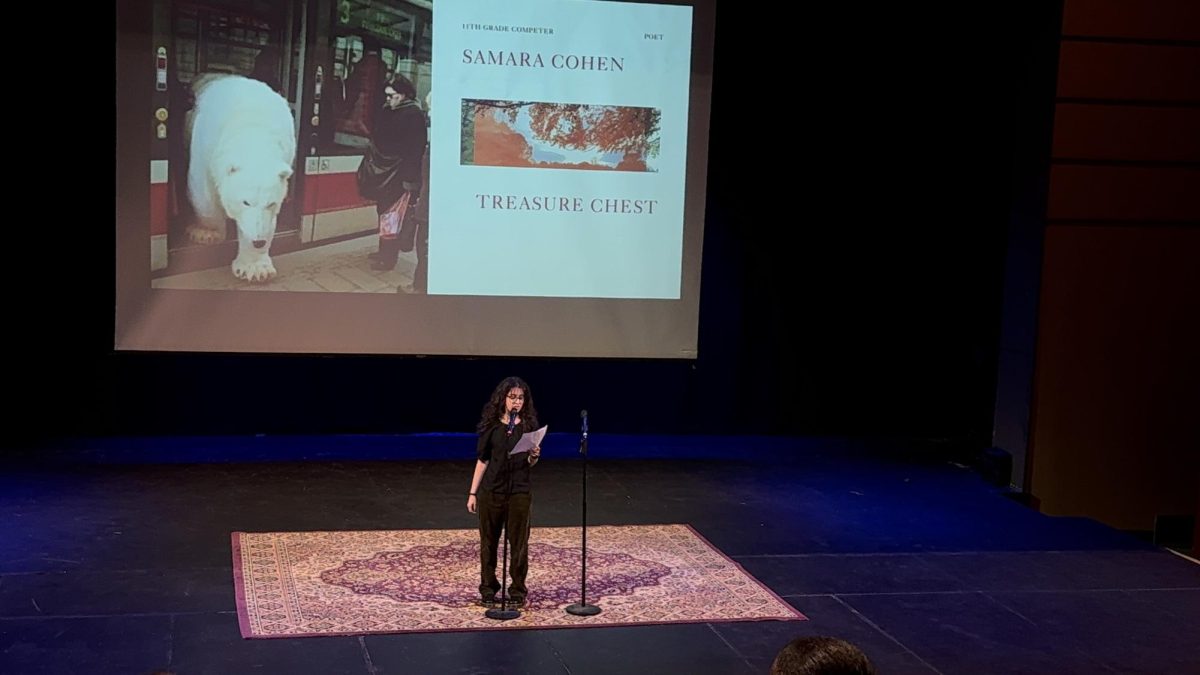
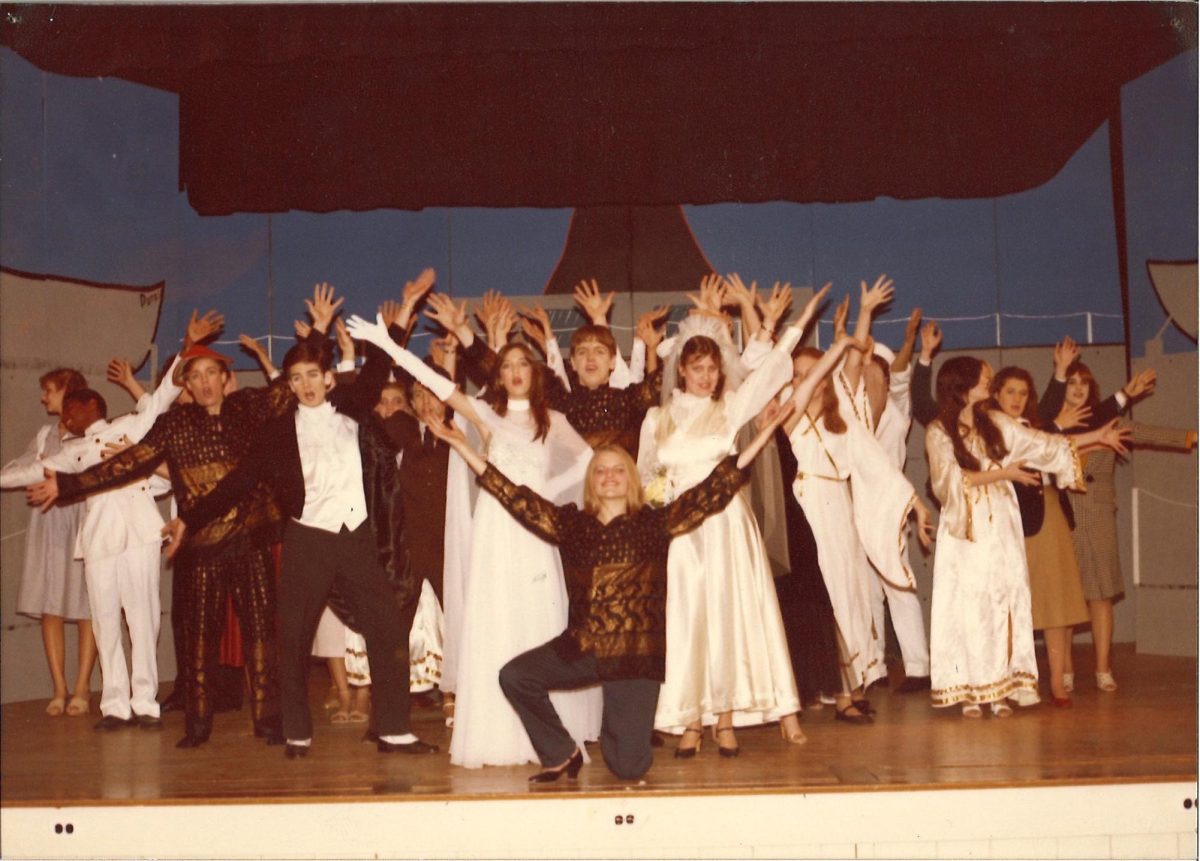


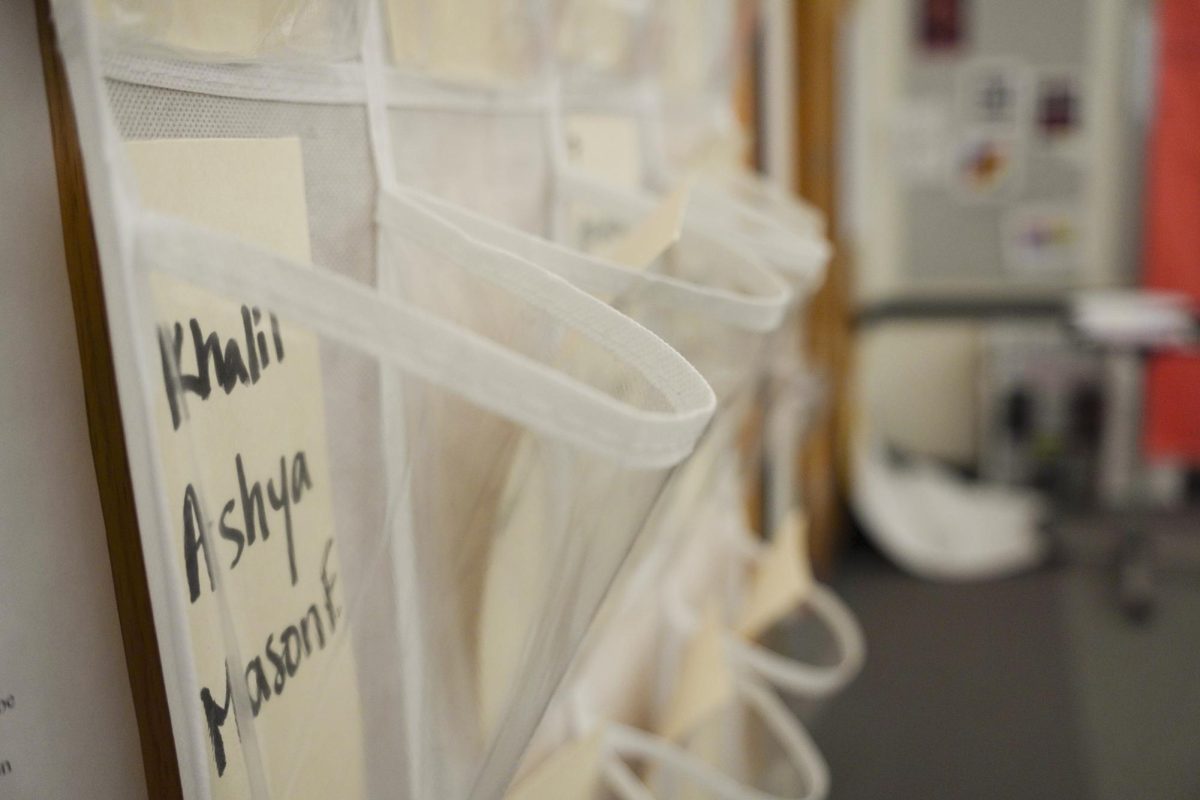




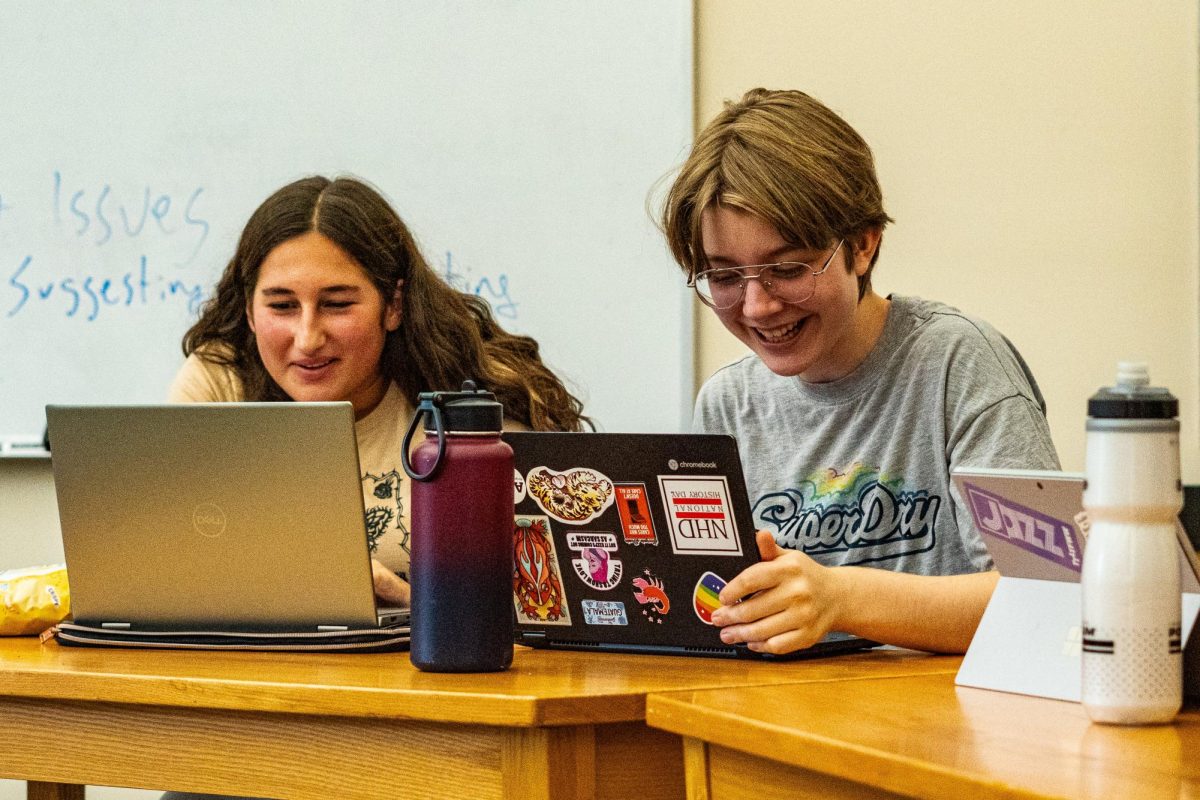

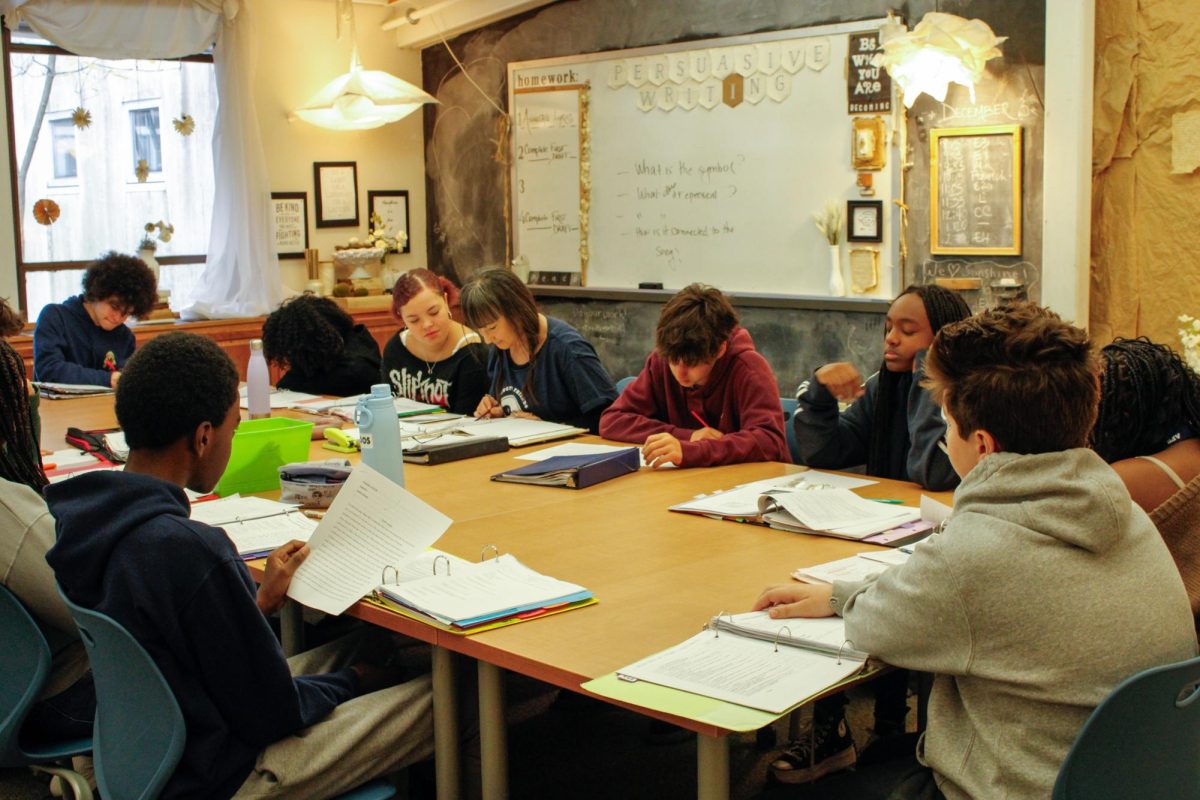
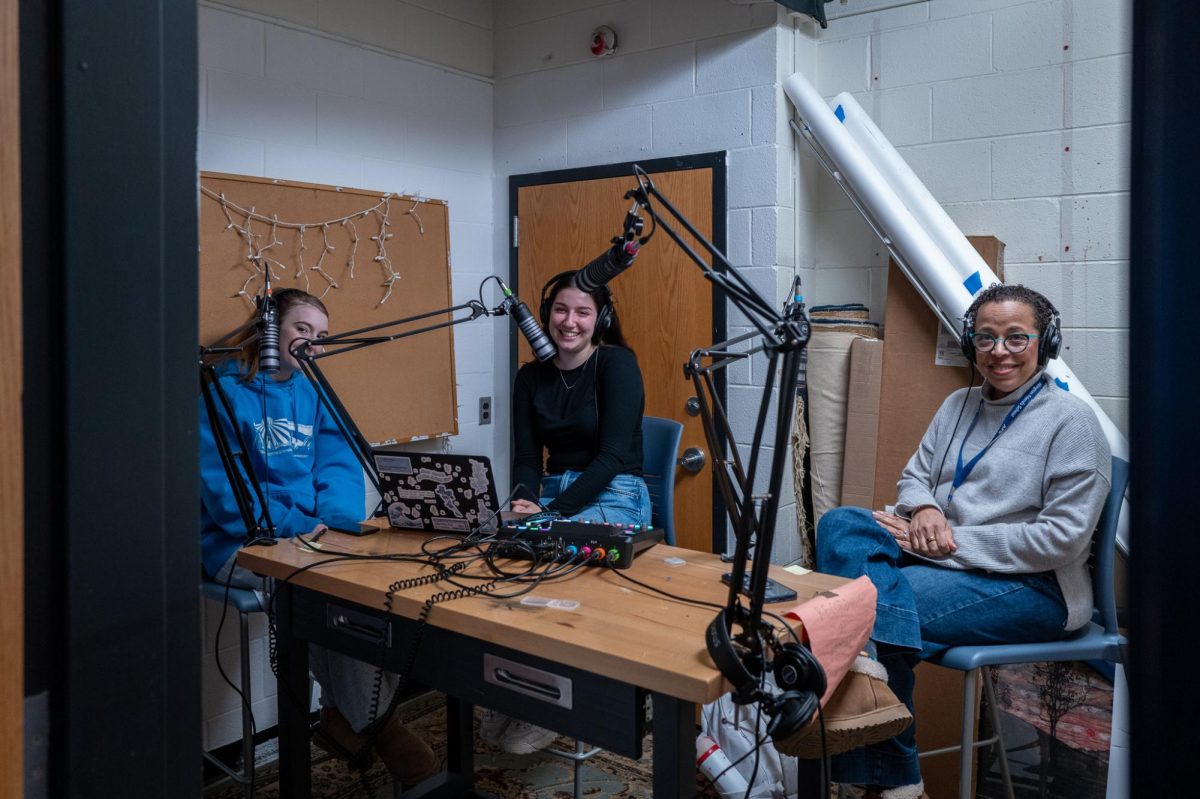
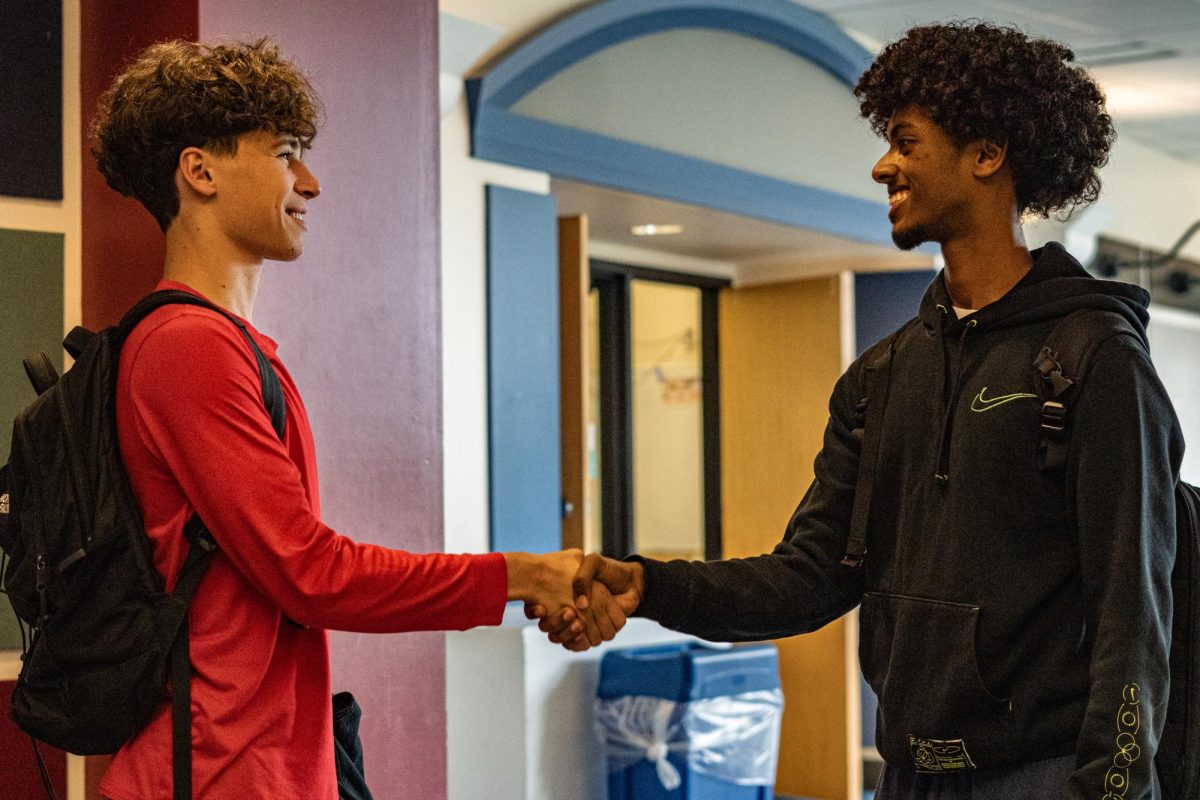

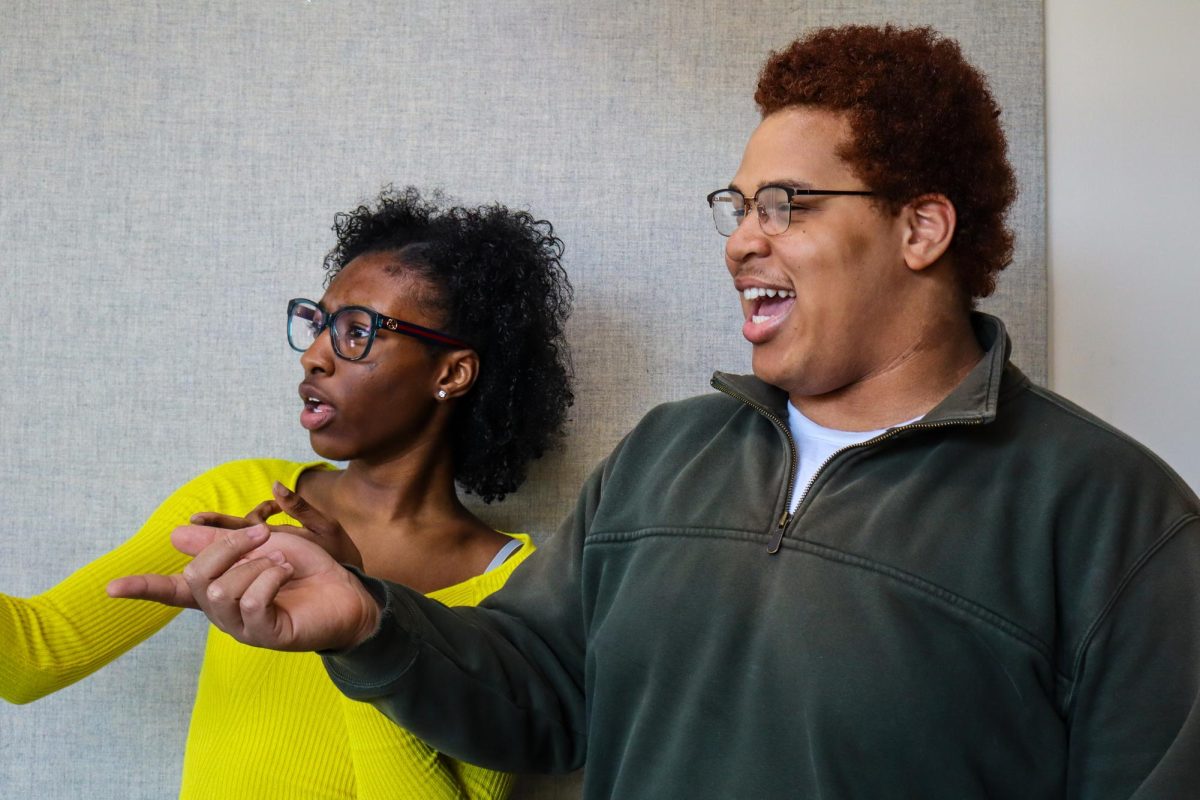




Rachel • Dec 12, 2024 at 2:01 pm
While some students and teachers can identify AP courses’ significance, such as college credit and academic rigor, other people think these advantages are not unique to only these courses. It is argued here that AFS’s elective classes and more standard classes already offer deep, learning experiences. I am not currently taking any AP classes, nor have I even put much thought into it. As I do understand both sides of the argument, I am waiting to see if an AP course is the opportunity I need and am willing to experience. AP’s can offer benefits like college credit and standardized academic rigor, as mentioned, which are attractive to colleges. However, with an advanced curriculum not providing AP classes it could still have similar benefits without the high-stakes testing, which, potentially, could lead to a more enriching educational experience.
Kevin • Dec 12, 2024 at 1:11 pm
Although i didn’t take any AP course yet, but i am still very interesting about it. From the article, i saw that like teachers or student neither gave high positive comment of AP courses. They just said that AP course is a advance class which can improve you but no big differences with honors courses. Although we know that AP can’t help you so much, lots of people will still going to choose to take AP courses. I think one is because if doing well in the AP, the grade will higher than honors or normal courses. But instead, higher grades means more effort. So it depends on students. The biggest purpose to take AP courses is to get a better college, so lots of students like” take as many as i can ” I don’t think it is right, in my opinion we should take the AP which you interested in or you sure you can do well of this course. Or it will be a burden.
Cora • Dec 12, 2024 at 1:09 pm
I think that APs can be beneficial to improve a students skill level in a class or to allow them to explore an interest deeper. However, don’t think they are/should be crucial to one’s learning experience, especially at AFS where very few AP classes are offered. I think that, in theory, getting rid of AP classes may not change much. That being said, it doesn’t mean that we should. AP classes are great opportunities for those who are interested in taking them, no matter the motivation. I know that for me, test based learning simply isn’t the best way for me to learn. Because of this, I don’t know that I’ll really feel the need to take any APs during my high school career. It may be better for the larger student population to teach the same content without the exam centered curriculum because of reasons such as this.
steven niu • Dec 12, 2024 at 12:51 pm
By reading “To AP or not to AP?” I have learned that many students choose to take at least one ap course in high school. If we have enough free time after class I think we can take some ap courses. The advantages of AP courses may be shared by other courses or exams, but learning should focus on getting enough knowledge. And ap courses can provide us with enough extracurricular knowledge and will be of great help to our future study career. Meanwhile, I think ap exams are also very important because they are a way to test whether we have learned well. At the same time, it can also improve us by letting us know whether we have not understood or missed the knowledge. So it’s not so good to have courses that don’t rely on tests.
Aila • Dec 12, 2024 at 12:49 pm
I agree with the points made in the article because I do believe that the educational system in the U.S. is flawed. After all, the system places all of its value on the grades you get and the “harder” classes you take, versus acquiring knowledge. I think that it is important to take these classes to get the skill set required to go to college. I plan to take AP courses if I can get into them. I think that taking a more advanced class will help my education as well as improve my transcript for college. I also would like to push myself by taking classes with more standardized tests to prepare me for the world in which I do have to take those kinds of tests. I don’t think that AP courses really improve education; the only thing that may be beneficial (aside from the college credit that comes from taking AP classes) would be that you are surrounded by your peers who want to be there. Nobody takes an AP just because they have to; they take an AP class because they want the college benefits that come from it. So when you are surrounded by those who want to be there it makes things like class discussions and group projects more tolerable because people are trying to get the good grades required to stay in the AP class. However, some cons exist from taking an AP class which I think we can blame on the system we use to teach. The standardized tests and quizzes can be stressful to those who are not good test takers. If you are not a good test taker then you will struggle the older you get and closer to college you will be.
Jona • Dec 12, 2024 at 8:42 am
Although I am not currently taking an AP class, I plan on taking AP French, physics, and maybe even an AP math class because I feel like I can push myself to do hard things and I believe I have the capacity to be able to learn and do well in those classes. I strongly believe that AP classes are a necessity at this school since it is a college prep school and AP classes are clearly meant to further prepare you for college. Not only does it help put together skills for college, but it also looks really good on applications. There is absolutely no reason to take the classes away if the AP classes do nothing but make you more prepared for college and make your applications even better.
Ruhi • Dec 12, 2024 at 8:36 am
I also think that APs can definitely help with surpassing some basic college courses so that you can spend more time (and money) focusing on things you actually need to study to go into your field of study. Many of the basic courses required for you to take are basic courses you did in high school you don’t need and can spend a whole extra year on that! So I think APs can help push you out of that so that you don’t waste a whole year doing nothing. I also think that the tests really help you prepare for what college is going to look like since those are college-level exams.
Anais • Dec 12, 2024 at 8:30 am
I valued all the different perspectives and I think it’s important for people to see different takes on this topic or any topic rather. I’m not sure yet if I would be interested in taking an AP class because just like this article articulated: there are many pros and cons. I think AFS or any school would benefit from offering a more advanced class with similar material and for it to be less exam-focused. School is about learning and not taking tests. It’s good to have an option were students can take more advanced classes if they don’t feel challenged but we can’t forget the reason why we go to school. So we can learn and learn how to learn.
Ruhi • Dec 12, 2024 at 8:27 am
There is no right or wrong answer to this perspective as everyone is different. Everyone has different learning capabilities and uses them differently. Some people prefer not to take AP courses and that’s okay. It all depends on how in-depth that individual wants to go. I plan to take AP classes as they look good on college applications and teach you a lot about a subject, especially subjects you are really interested in. I think these classes enrich our curriculum because we gain so much knowledge from them and they teach more than any other class could. It’s like taking an honors course compared to a normal course.
Quincy • Dec 5, 2024 at 11:42 am
I personally think that aps are most definitely worth it because it offers you the possibility to take college level courses and be able to experience college level work while still in high school. I think its worth it because it give a small glimpse into the future and what you will be facing in the near future. After high school you’ll be able to possibly adapt more to your surroundings if college and also be more prepared when I comes college. Also once you apply to college you’ll be able to receive partial credits once you have been admitted
aly • Dec 4, 2024 at 10:53 am
I think APs are a really good way to try and get a bit more of the college experience out of a class. Personally I only took one AP but I honestly kind of regret it because its actually really difficult for me and I do not really think I am ready for that kind of class yet. However it is a super fun class and I am honestly learning a lot about a topic I had never even considered looking into before so it is a really great way to learn new things especially if you are already doing really well in school.
Nevaeh • Dec 3, 2024 at 7:54 pm
I personally believe APs give us a taste of what a normal, sterotypical highschool is like. I do think we should have more at least in the humanities departments. I do think they have value, but I also agree that they offer little creativity for exploring new topics and going down rabbit holes. I also think though that APs and the level of rigorousness of them depends on the school that you attend and how much attention a teacher can give to each student. There is a reason why students from AFS constantly get 3s and up on the AP exams. We have about 20 students to a class MAX, and a teacher is able to give us each as students individualized attention. Colleges don’t really see how much help and homework we’re given compared to other places.
Serafina Kubersky • Dec 3, 2024 at 1:56 pm
I am a junior and for me, AP’s offer an opportunity to take deeper dives into topics I am interested in. Because of its rigorous and challenging nature, I am able to get used to what college classes will be like, and I can determine if the topic is one I am passionate about enough to continue throughout college. I think that if we rid of AP’s in favor of similar paced elective courses, we lose the benefit of the AP title. At least from my experience, AP’s are taken by those who understand and accept the challenging topics and pace. Students have set expectations for an AP class, and I think that by keeping the coursework but removing that tile, students are at risk of not fully understanding the complexity of topics and workload of the course.
Daniel • Dec 3, 2024 at 12:48 pm
I think this article does a great job of getting multiple perspectives on the topic (students, teachers, and even college guidance counselors). I’m currently a Senior and I haven’t really taken that many APs throughout high school. I took AP Comp Sci in my Junior year. Calc AB and Stat in Senior year. In my opinion, there isn’t much novelty that comes out of taking an AP. The way I view it it’s just the next level, and it feels the same as going from a regular course to an honors. I don’t think it’s as scary as most people think; you just need to organize your time better. I think we AFS should keep AP courses because they are standardized. Students have a way of knowing how they compare to the rest of the students who also take that course
Sam • Dec 2, 2024 at 2:05 pm
I am in AP Chemistry and it’s by far the most challenging class I have ever taken. The workload plus the difficulty of the concepts makes the class time consuming and hard, but there are also good things about it. Firstly, chemistry is fun for me meaning that usually I want to be in the class. I think another good thing about APs is that they teach you good work skills. I have to constantly be checking homework, talking to teachers, and making sure I understand content. I would not take APs if you don’t have a lot of time, patience, or are just uninterested in the topic, because you most likely won’t do well.
percy • Dec 1, 2024 at 9:52 pm
Currently I am taking two APs my junior year, so I care about AP’s and making sure I have a course load that looks hard to colleges. In terms of the question stated at the end of the article: I think that APs are very important to keep in the circulum because like quoted in the article, its good to see how AFS students do in non AFS spaces and I think that that advantage of knowing how students test in a test that isn’t decided by a teacher at your school is very important and shouldn’t be ignored.
Casey • Nov 30, 2024 at 4:37 pm
I appreciated how many people interviewed highlighted the importance of electives in the curriculum. I feel that electives give teachers much more freedom to teach to their strengths and explore more complexity in the content that they teach. Still, I disagree based off of my experiences in elective classes that they generally are similar in difficulty to AP classes. This makes me wonder why AFS couldn’t just replace APs with more advanced elective offerings that would count the same credit-wise as an AP or honors class while allowing for more specified focus on subjects. I loved my experience taking APUSH last year and felt that I learned a lot about U.S. history but I can’t help but wonder if I would have gotten more out of a similarly difficult class that didn’t try to teach me ALL of American history.
Alana • Nov 29, 2024 at 8:53 pm
I agree with a lot of points in this article. AP classes are very time-consuming, and if you are not interested in the topic I think it is best for someone to not take the class. I believe learning should be about enjoyment, but the college part of that ruins it at times because people prioritize getting into a good college over personal enjoyment, which I understand. I am a victim of this as well. I am currently in a few AP classes, and they are not as scary as they seem compared to how I viewed them when I was an underclassman. I feel like if you put lots of effort into the class you will succeed. I think the AP classes do enrich our curriculum because it gives students an idea of what college classes are like, and teach students the proper ways for time management and studying.
chloe • Nov 29, 2024 at 3:03 pm
I agree with a lot of points brought up in the article, for instance, I do agree that because AFS is such a small community, there aren’t many APs offered, which means that students don’t have many to choose from compared to public schools. I also find it interesting that AP classes are very similar to regular or honors courses because the title “AP” has always seemed so prestigious. I will say I’m currently in an AP class, and I do feel that it is the most challenging course I am taking. I do believe it is truly pushing me as a writer and a reader, whereas my regular English class may not have had as large of an impact on me. At the end of the day, it’s about what you want and where you are headed, I don’t think there is a specific way to do it, I truly believe that if you’re passionate about something, take the AP, if not, don’t. I think AP classes share some value because they feel rewarding for students, and even if it may not seem all that different, the exams help prepare students for college.
Adalyn Smith • Nov 26, 2024 at 8:21 am
I think this is really interesting because I am a sophomore and am interested in taking AP courses in the future. This is a good insight in if it really matters if I do or not because I have people all around me telling me I should but am not completely sure.
Dean sadowski • Nov 26, 2024 at 8:20 am
I’ve never put much thought into our schools AP classes but this perspective that is questioning the usefulness of these classes is quite interesting. I would only want to do a AP class or classes that align with things I am interested in while a lot of students seem to want to take AP classes to look better for colleges and to help them in getting into the college they want. Me personally I’m not quite interested in college which explains why I don’t care all that much about AP classes and taking them but I wonder if everyone feels the opposite? I know this is not true because some of us are still trying to figure out if we want to go to college or what college we want to go to or what we will pursue. I think AP classes are worth it overall It’s just based on your perspective and they prepare you for that leap of faith into college